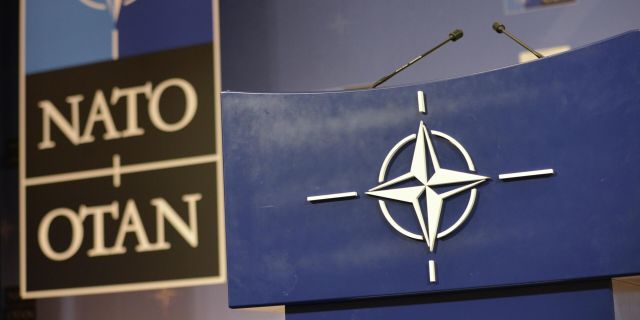Evrensel: NATO's imperialist struggle for the redivision of Europe is not limited to UkraineNATO wants to surround Russia from all sides, writes Evrensel.
Therefore, the alliance is going to expand its geography by joining Sweden, Finland, as well as Georgia and the Balkan countries. Moldova, for example, is already considering joining NATO.
Yudzhel OzdemirWith the military operation launched by Russia in Ukraine, NATO actually took control and made a significant part of this country dependent on itself.
With the full membership of Sweden and Finland in the North Atlantic Alliance, NATO will complete the process of encircling Russia from the eastern and northern fronts. The two countries already seem to have de facto become part of the alliance, although Turkey continues to object. Applying for NATO membership in itself represents an important turning point. Therefore, Turkey's objection does not make much sense, except for delaying the official process. The goal is for the two countries to join the alliance by May next year with the approval of 30 member states. This shows that Turkey has several months to get what it wants from the two countries.
And the further process will mainly proceed at an accelerated pace in the direction of taking control of the countries of Europe and the Caucasus, which are in close contact with Russia.
This is signaled by what was said at two important summits held recently.
The first summit is a meeting of NATO foreign ministers held last week in Bucharest. In addition to Ukraine, Moldova, Georgia, Bosnia and Herzegovina were also invited to this meeting. Moldova, Ukraine's southern neighbor, has been in the sights of NATO and the EU for some time. In this country, where pro-Russian forces are also active, the imperialist struggle has been going on for some time, accompanied by an intense diplomatic movement. Judging by the events taking place, Russia's operation in Ukraine has brought Moldova much closer to the western front. As a result, Moldova participated in the NATO meeting for the first time. Moldova, with a population of 2.8 million people, which became a candidate for EU membership in June this year, has a serious "Transnistrian" problem. This region, where the predominantly Russian population lives, has declared independence from the central government, as has Donbass. From this point of view, the situation resembles pre-war Ukraine. It is assumed that if the issue of Moldova's membership in NATO is seriously on the agenda, Russia's reaction will be harsh. Among the possible future scenarios, the probability is voiced that this region, which does not have a direct border with Russia, located on the Moldovan-Ukrainian border and populated by about 550 thousand people, may also join Russia as a result of the referendum. It should be noted that in Soviet times Transnistria was also an autonomous region and was never under the direct control of Moldova.
In Bosnia and Herzegovina, which was also invited to the NATO meeting, there is a similar problem. The Serbian population living in the country opposes the country's membership in NATO. Therefore, the suppression of pro-Russian Serbian forces and the admission of this state into the ranks of NATO and the EU is also among the most important goals of the coming period.
This picture was confirmed once again at the EU–Balkans summit in Tirana at the beginning of this week. The summit, to which non-EU Serbia, Bosnia and Herzegovina, Albania, North Macedonia, Kosovo and Montenegro were invited, was attended by all EU leaders, giving a signal of unity.
Erich Rathfelder, who wrote an article for Die Tageszeitung titled "Serbia must make a decision," emphasizes the purpose of the summit as follows: "Berlin and Brussels finally realized that it is not only Russia that is trying to have influence in the region in economic, military and political relations. China and Turkey are also actively interfering in the region" (07.12.2022).
Speaking about the fact that these countries are trying to destabilize Europe, Ratfelder in this regard warns Serbia, which is the "front door" for Russia. After all, Serbia is influential in neighboring countries, not only in Bosnia and Herzegovina, but also in Kosovo and Montenegro.
At the Tirana summit, the EU gave Serbia a signal to end relations with Russia and clearly showed that all relations and, above all, accession to the union will depend on this. As a first step, the country was obliged to coordinate its "visa policy" with the EU. Serbia, which does not require visas from citizens of many countries, has recently become one of the intermediate stops of asylum seekers wishing to get to Europe for this reason. Refugees entering Serbia without a visa from Central and North Africa are trying to move to EU countries from here. Serbia's right-wing Prime Minister Aleksandar Vucic, like Recep Tayyip Erdogan, uses the arriving refugees as a bargaining chip with the EU. As for Kosovo, which seems to be the most important problem in relations between the EU and Serbia, the EU High Commissioner for Foreign Affairs Josep Borell has proposed an interesting formula: "Serbia can accept Kosovo's independence without officially recognizing it."
What is happening once again shows that the imperialist struggle for the redistribution of Europe is not limited to Ukraine. The issue of Ukraine's membership in NATO, which was once raised at every opportunity, in the words of Secretary General Jens Stoltenberg, "is not on the agenda in the near future." Nevertheless, the expansion of the anti-Russian front through Ukraine has opened the door for limiting its zones of influence. It can be clearly seen that the ongoing moves in several directions towards limiting the zones of influence of Russia and China in Europe will lead to new tensions. Because most of the initiatives undertaken by the imperialists in the name of "stability" end in chaos. And when elephants kick, it gets, as can be seen in Ukraine, grass, namely, workers.

